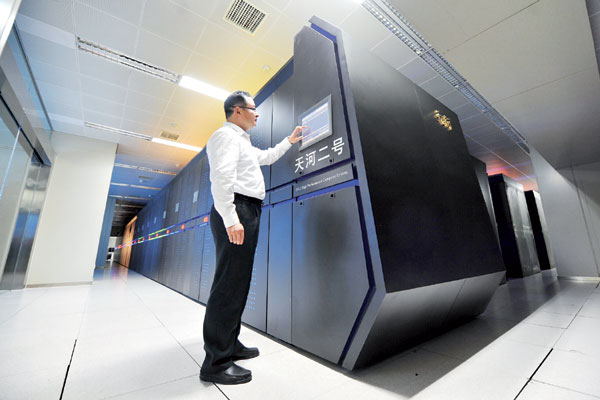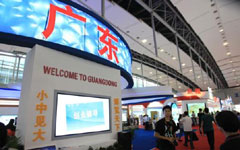Guangdong raises its game
By Qiu Quanlin (China Daily) Updated: 2014-05-05 08:19
 |
|
Scientists say Tianhe-2, the world's fastest supercomputer introduced to Guangzhou last year, will boost Guangdong's industrial innovation. CHINA DAILY |
Province moves to innovation-and consumption-driven economy
When the world's fastest supercomputer, Tianhe-2, was introduced last year to Guangzhou, the capital of Guangdong province, many scientists and researchers believed it would help boost innovation and upgrade traditional industries in the southern province.
"Like many urban infrastructure projects such as expressways, the supercomputer will help build a driving force for construction of an innovation-oriented economy in Guangdong, which has long been labeled as one of the major manufacturing bases in the world," says Wang Jian, the president of BGI, a biotech company in Shenzhen.
|
 |
 |
"Ranking first is not the only important thing," Wang says. "The supercomputer supports local companies in scientific research and management, helping them to better upgrade,"
For example, nearly 100 pharmaceutical enterprises in Guangzhou, with a combined output value of about 12 billion yuan ($1.92 billion), have high demand for pharmacological experimental data operations, Wang says.
"Advanced facilities such as the supercomputer will help these companies better conduct experiments and data analysis."
Introduction of the supercomputer represents the first of several efforts by the Guangdong government to enable its industries to move up from manufacturing to a more innovation-driven economy, Wang says.
Officials at the provincial science and technology department say Guangdong has signed a series of strategic cooperation agreements with some leading domestic science and research institutes to introduce advanced technologies to the province.
"Following the introduction of a number of high-tech projects, we have made breakthroughs in some key industrial areas," Huang Ningsheng, director of the Guangdong Science and Technology Department, told Nanfang Daily.
- Harnessing the power of ideas
- Baosteel, Aurizon offer $1b for Aquila Resources
- New nuclear generating unit operational in East China
- China's manufacturing weakens, but at slower pace
- Profitability of China's listed firms rebounds in 2013
- China factory activity shrinks in April
- China's first mobile virtual operator launches business
- India's smarter-shopping Phenom
















